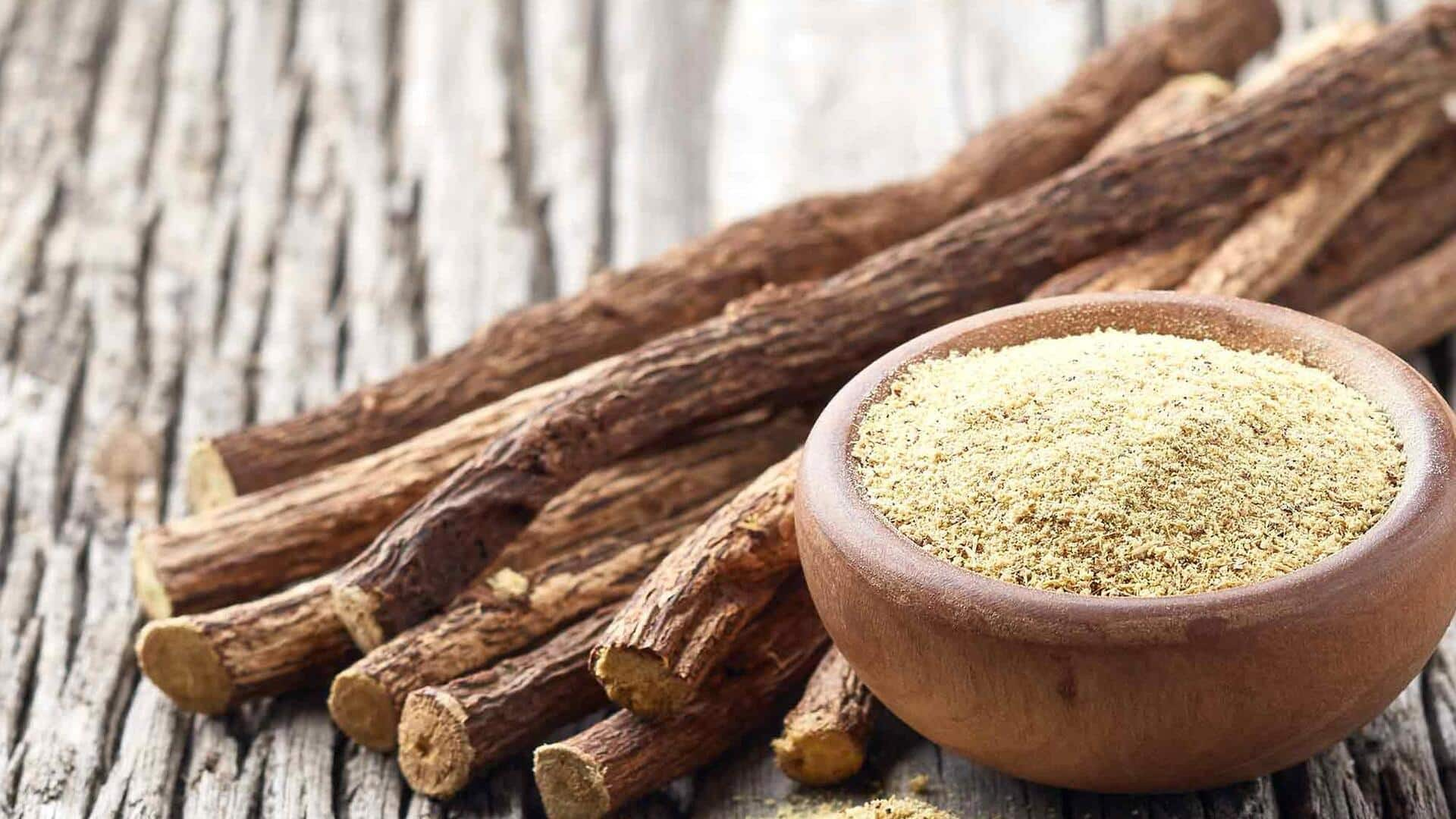
Preventing cold sores with licorice root extracts
What's the story
Cold sores, or fever blisters, are painful and unsightly skin conditions caused by the herpes simplex virus.
Understandably, many individuals seek effective remedies to manage these outbreaks.
Licorice root extract, with its antiviral properties, has emerged as a promising natural solution.
This article explores how licorice root extracts can be used to prevent and manage cold sores effectively.
Antiviral
Understanding licorice root's antiviral properties
The glycyrrhizin in licorice root has demonstrated strong antiviral properties against the herpes simplex virus in lab studies.
By stopping the virus in its tracks, a licorice root extract can potentially decrease the intensity and length of your cold sore outbreaks.
Remember, though, while the research is encouraging, more studies are necessary to confirm its effectiveness.
Application
How to use licorice root for cold sores
To use licorice root extract for cold sores, you can apply a small amount of cream or gel containing at least 2% licorice extract directly to the affected area.
This should be done three to four times a day until symptoms improve.
Or, mix powdered licorice root with a small amount of water to create a paste, and apply it to the sore.
Caution
Precautions and side effects
Although licorice root is safe for most people when used in moderation, some side effects can occur.
Long-term use or high doses can cause high blood pressure, low potassium levels, and other health problems.
Pregnant women and those with certain medical conditions should not use licorice root products without first talking to a healthcare provider.
Dietary tips
Incorporating licorice root into your diet
Besides applying it directly, consuming foods or supplements with licorice root can enhance your immune system's ability to combat viruses like herpes simplex.
However, it's important not to overdo it as high quantities of glycyrrhizin can lead to undesirable side effects.
Remember, moderation is crucial when utilizing dietary supplements for their health advantages.